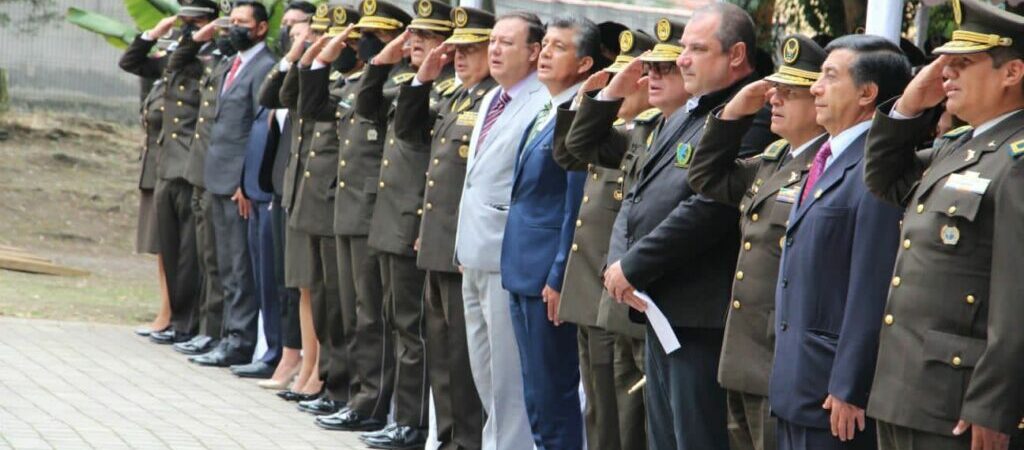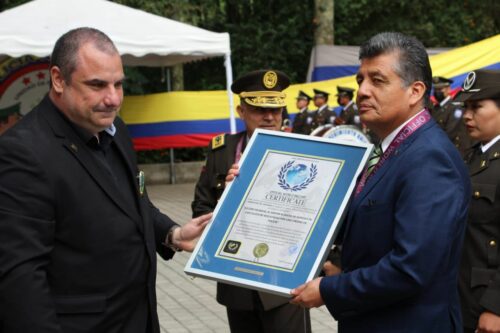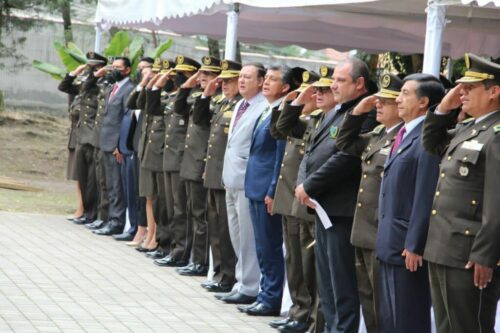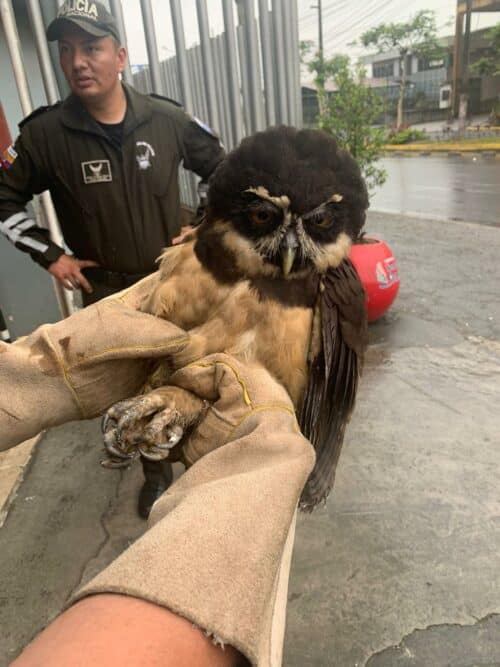
The Most Number Of Wild Species Rescued By A Police Force

History of the national environment protection police unit U.P.M.A
Historical review:
The unit for the protection of the environment of the national police was created on July 24, 1998, an assignment that is collected in art. 4 of the organic law of the national police, published in the official registry no. 368, assigning specific functions to the different police services.
Taking into account that the natural resources of our territory are increasingly threatened to cause irreparable damage to the health of living beings and the environment, the national police of Ecuador, aware of this reality, trains its police officers, training and specializing them in the field of nature protection.
Our mission:
“Ensure compliance with the legal provisions that are intended for the conservation of nature and the environment, of the hydraulic resources, as well as the kinege, nature, forest and any other related wealth

Our vision:
“That the environmental protection unit in the coming years will continue to be the first environmental control police unit in Latin America. This will require innovative and professional actions properly planned, with clear mechanisms that ensure the sustainable development of the country “
Operational objectives of U.P.M.A
Increase the effectiveness of preventive and investigative control operations on environmental issues through effective coordination with the different institutions immersed in the area of environmental control, the optimization of available resources, as well as the communication of education.

Our specialized unit has trained personnel so that they can take the respective procedures according to the following activities:
- execute control operations against the traffic, trade, and illegal possession of flora and fauna, in ports, airports, post offices, and strategic points along the border
- collaborate with national and international authorities and organizations to plan and execute an effective environmental policy
- carry out actions aimed at favoring the development of wild flora and fauna, especially protected species.
- encourage behaviors of respect for nature
- check the state of conservation of natural, hydraulic, geological, and forest resources, preventing their contamination.

Our unit during these 23 years of institutional life with its highly trained and professional staff has been helping directly to prevent possible environmental crimes, especially wildlife species that are highly threatened either by agricultural expansion, growing population, pollution, soil degradation, climate change, and others.
In recent years and with the constitution of 2008, our country has been seen in the eyes of the world as the first constitution to give rights to nature, this recognition that changes the vision and culture of all our citizens has been very important. So today they look at nature as asking for help and have no voice. Over the years, thanks to our laudable work, it has been possible to conserve and preserve some species that are in danger of extinction such as pumas, tigers, lions, turtles, leopards, iguanas, anacondas, boas, alligators, eagles, parakeets, toucans, chichico de manito, coastal capuchin, capuchin monkey, squirrel monkey, squirrels, wolves, foxes, jaguars, deer, the condor, the giant otter, coastal crocodile, Guayaquil parrot, brown-headed spider monkey, black-breasted zamarrito, spectacled bear, Galapagos albatross, pacific jambato and jaguar.

The destruction of habitats, overexploitation, illegal trafficking of species, and the introduction of exotic species are among the main causes that put thousands of species at risk in our country, but daily action, constant work and the firm conviction to serve to nature have been the key to helping to a large extent that these wild species have not disappeared.
The joint work with state departments and governmental and non-governmental organizations has been the fundamental pillar to carry out effective work from the beginning of this unit to its present time.
Currently, our unit has the support of the government and the institutional high command, to continue working and helping to conserve and preserve the resources of our mother earth. The national unit of police for the protection of the environment of Ecuador in the last decade has rescued a total of 32,150 specimens of terrestrial wildlife, a product of illegal wildlife trafficking, rescues, and retentions.
